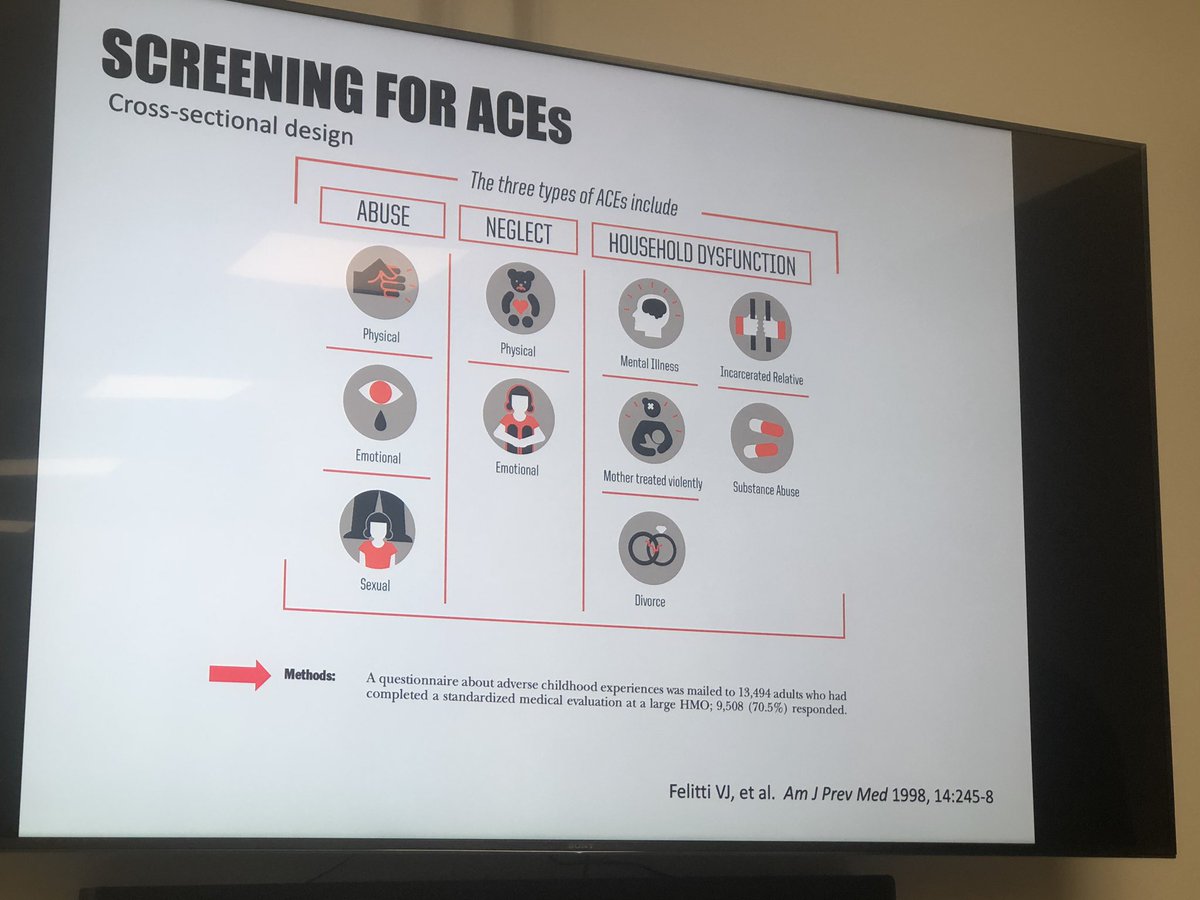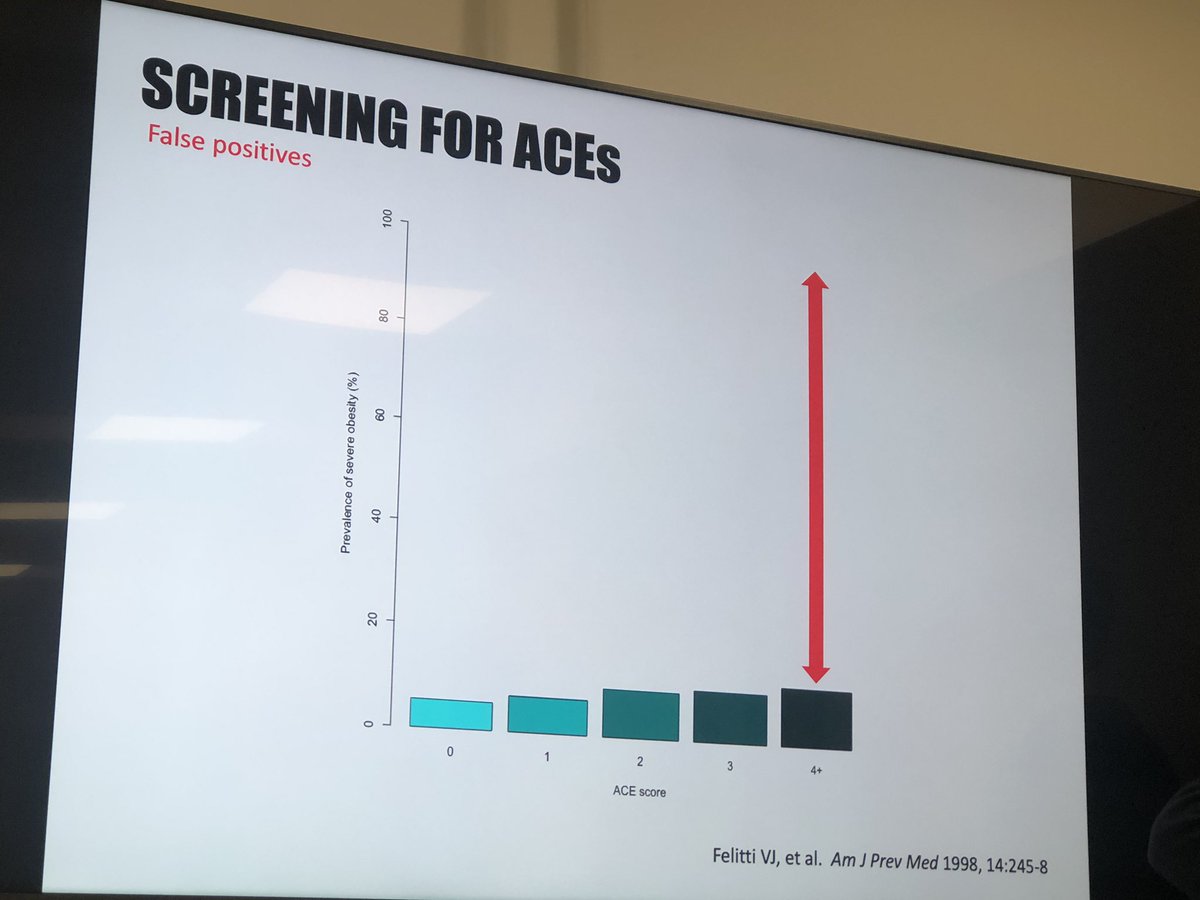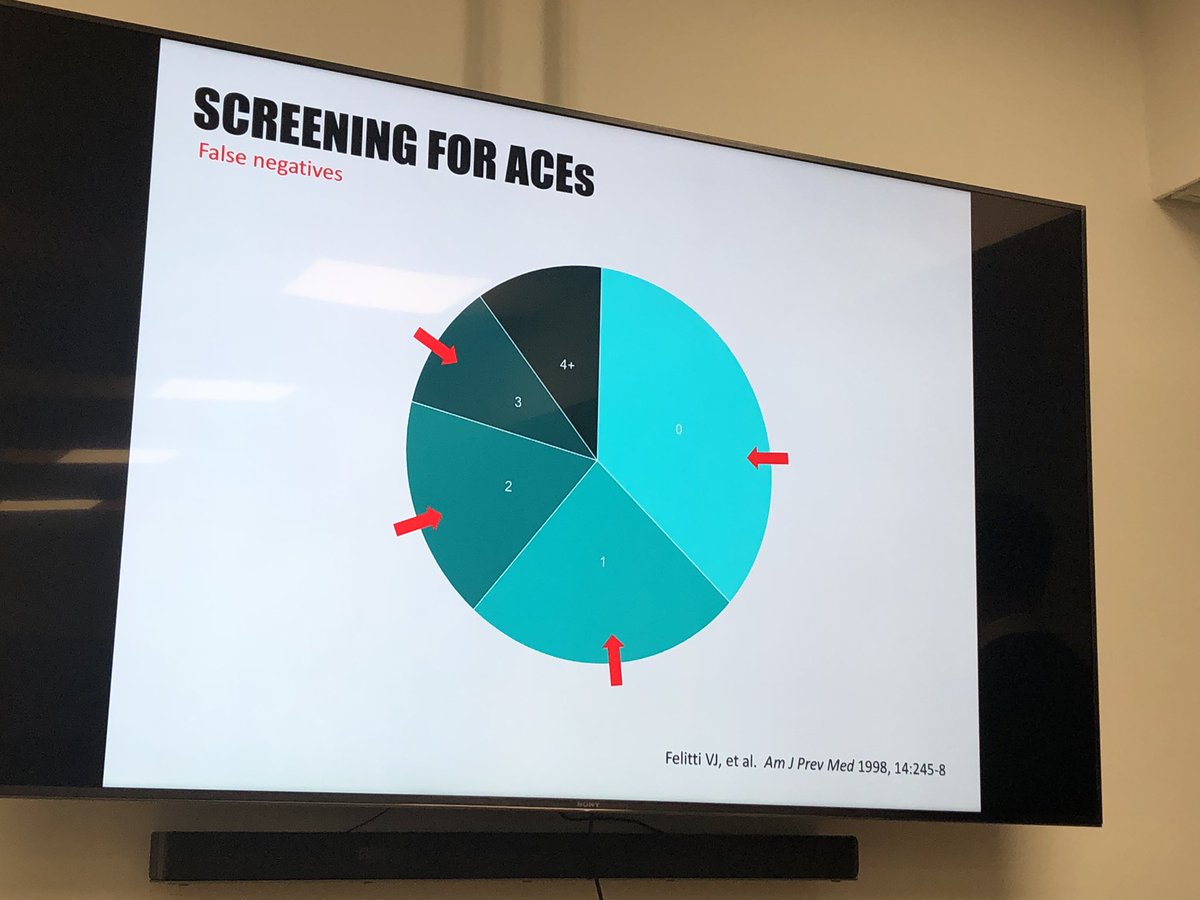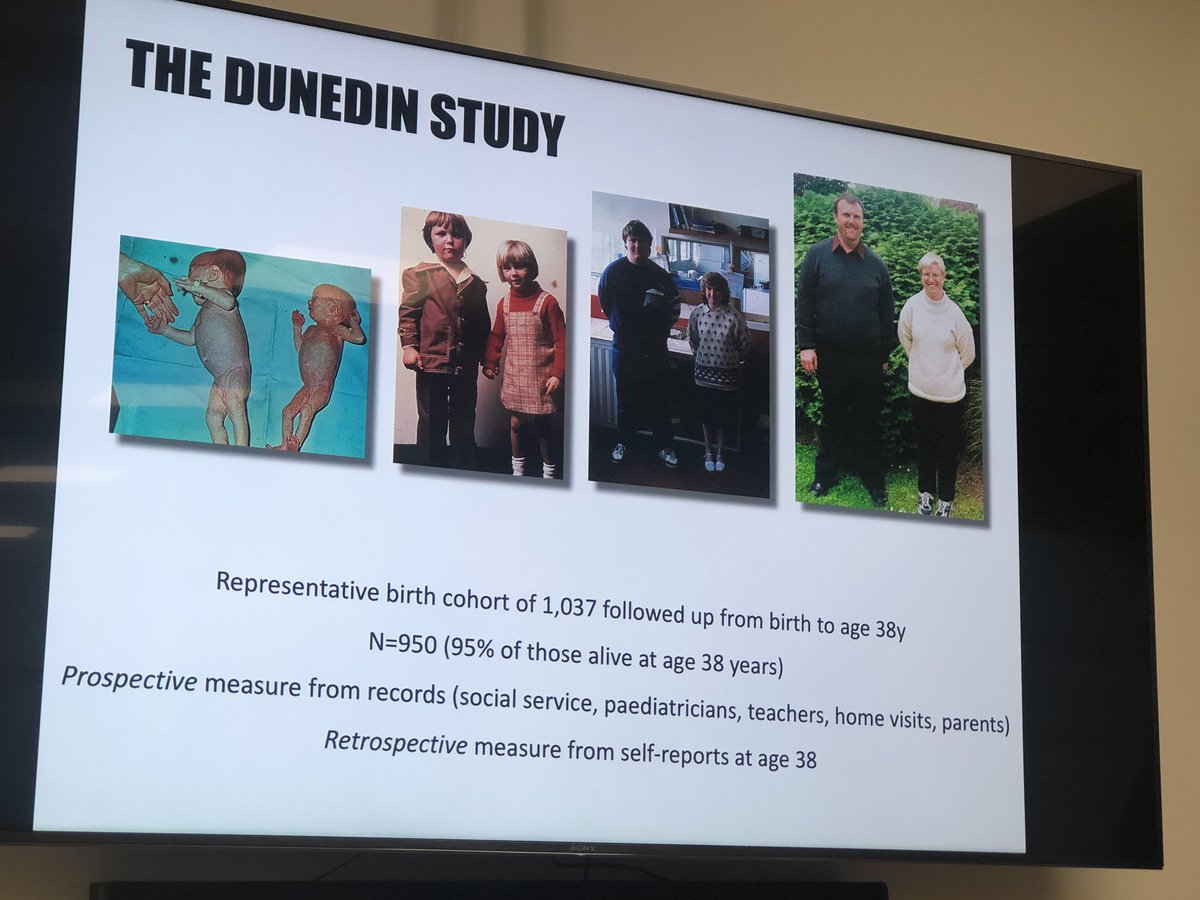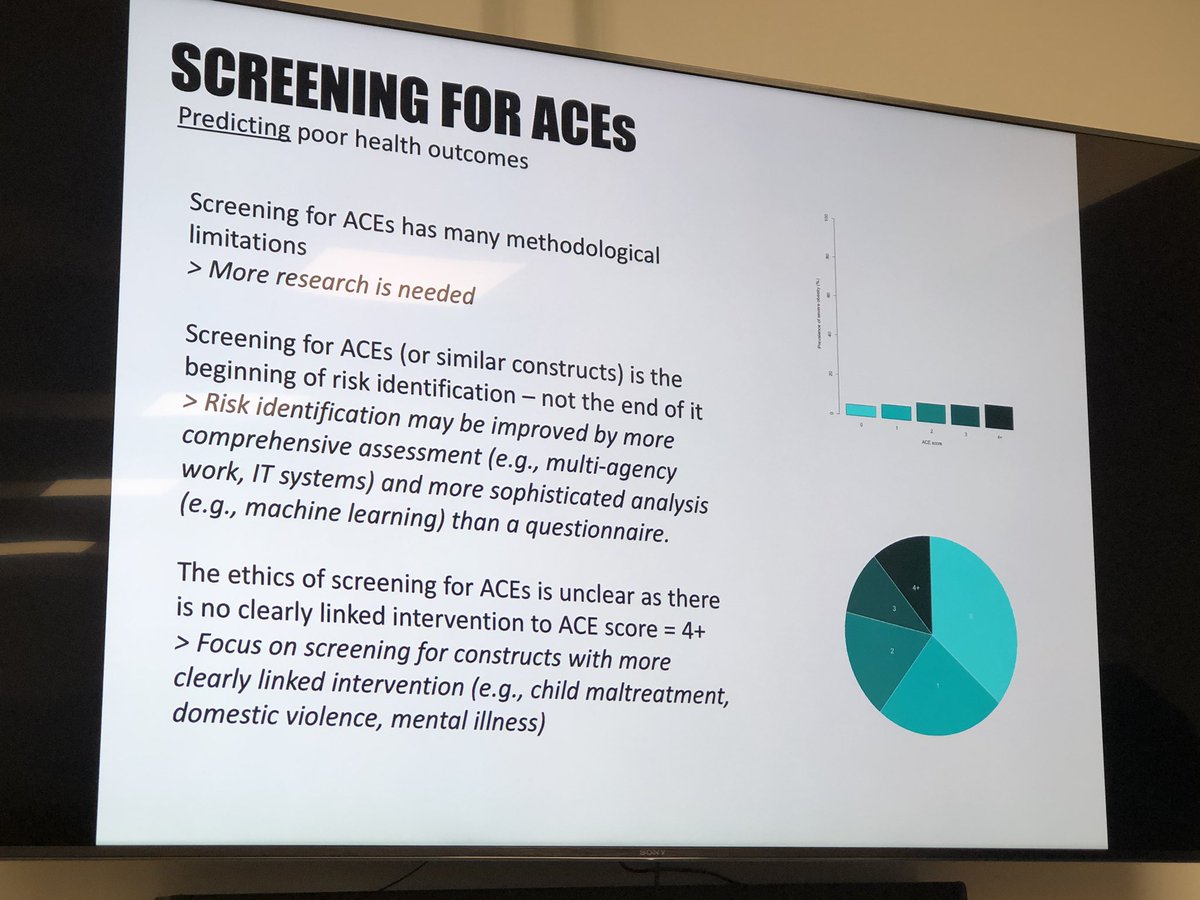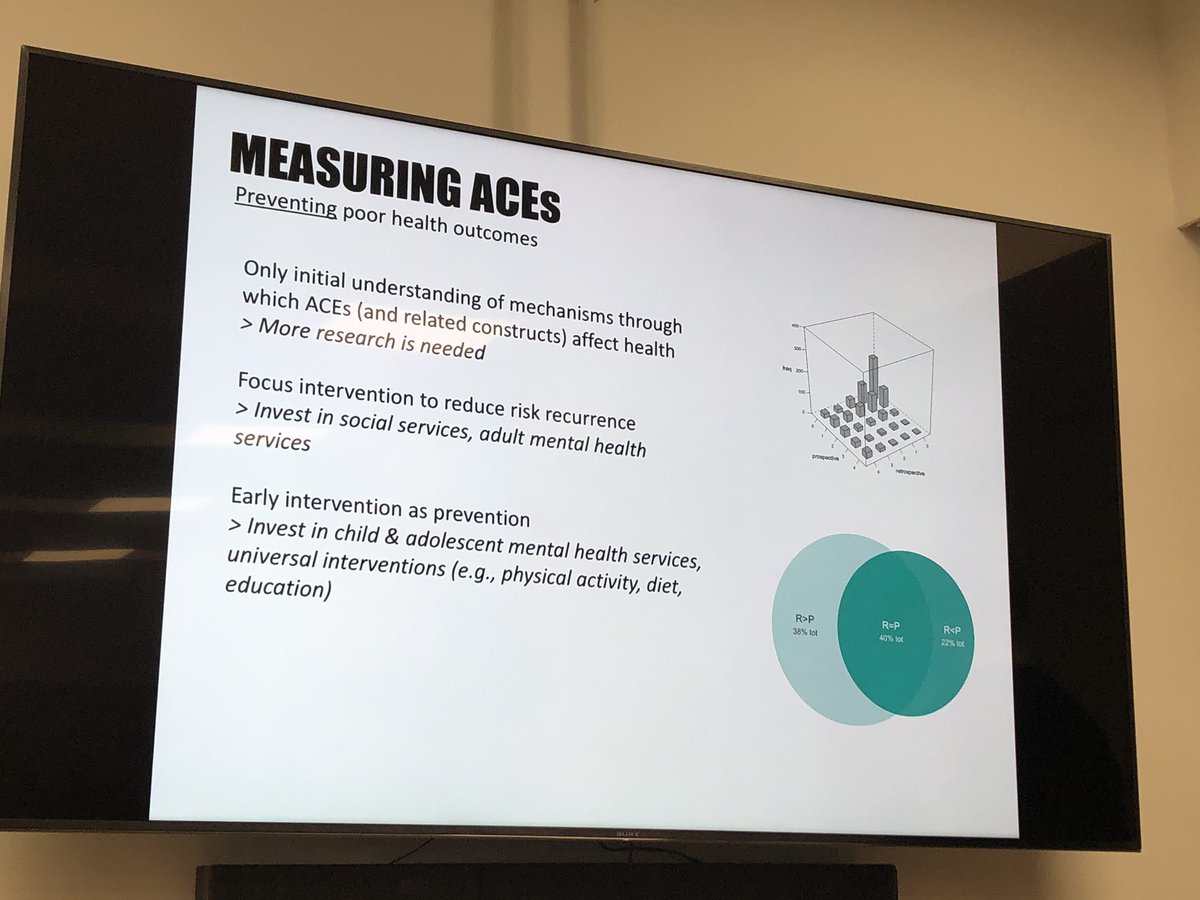Wow. This is proper nerdy and good.
"Can #ACEs scores be used to predict poor health outcomes in individuals?" (With some stats education thrown in.)
From @andrea_danese – Professor of Child & Adolescent Psychiatry @KingsIoPPN @MaudsleyNHS
At @csjthinktank (Thread https://abs.twimg.com/emoji/v2/... draggable="false" alt="👇" title="Down pointing backhand index" aria-label="Emoji: Down pointing backhand index">)
https://abs.twimg.com/emoji/v2/... draggable="false" alt="👇" title="Down pointing backhand index" aria-label="Emoji: Down pointing backhand index">)
"Can #ACEs scores be used to predict poor health outcomes in individuals?" (With some stats education thrown in.)
From @andrea_danese – Professor of Child & Adolescent Psychiatry @KingsIoPPN @MaudsleyNHS
At @csjthinktank (Thread
ACEs: What do we know?
An increased number of ACEs is correlated with an increased level of risk of physical illness. This has been replicated.
But this is population data. We don& #39;t know the predictive value of ACEs.
Can they be used to predict health outcomes in individuals?
An increased number of ACEs is correlated with an increased level of risk of physical illness. This has been replicated.
But this is population data. We don& #39;t know the predictive value of ACEs.
Can they be used to predict health outcomes in individuals?
Take obesity. If we try to use #ACEs to predict those at risk of obesity, we will have lots of false positives.
(The red arrow indicates the 88% who had 4 ACEs and are not obese!)
There is "low specificity".
(The red arrow indicates the 88% who had 4 ACEs and are not obese!)
There is "low specificity".
If we only look at the "at risk" group (4+ ACEs) we will have lots of false positives.
We will miss many people at risk of developing the outcome. (All those with 3 or fewer ACEs - indicated with red arrows.)
This is called "low sensitivity".
We will miss many people at risk of developing the outcome. (All those with 3 or fewer ACEs - indicated with red arrows.)
This is called "low sensitivity".
Health organisations are scaling up #ACEs screening, thinking they will be good predictors.
(E.g. State of California recently invested $100m in this!)
But screening by ACE scores has no clinical validity to predict individuals& #39; health outcomes.
(E.g. State of California recently invested $100m in this!)
But screening by ACE scores has no clinical validity to predict individuals& #39; health outcomes.
Most of the data collection on #ACEs so far has been retrospective - i.e. what do adults recall about childhood?
But can we assume that retrospective data perfectly correlates with prospective data?
(We can test this using a cohort study.)
But can we assume that retrospective data perfectly correlates with prospective data?
(We can test this using a cohort study.)
This is what perfect correlation between retrospective and prospective #ACEs reporting would look like
In reality, retrospective reporting of #ACEs as adults isn& #39;t very accurate.
38% of people "remember" more ACEs than they actually had, and 22% fail to report ACEs that they had.
38% of people "remember" more ACEs than they actually had, and 22% fail to report ACEs that they had.
The #ACEs questionnaire encapsulates a simple narrative that is appealing. But it& #39;s more complicated.
The ethics of screening for ACEs is problematic. There is no intervention for "4 ACEs".
We need to focus on screening for things that there are specific interventions for.
The ethics of screening for ACEs is problematic. There is no intervention for "4 ACEs".
We need to focus on screening for things that there are specific interventions for.
If we take one message away from #ACEs research, it should be that the cumulative effect of several ACEs is powerful.
So how do we prevent those combinations of circumstances?
More research is needed, but for now we can focus on early intervention/health/social services.
So how do we prevent those combinations of circumstances?
More research is needed, but for now we can focus on early intervention/health/social services.

 Read on Twitter
Read on Twitter )" title="Wow. This is proper nerdy and good. "Can #ACEs scores be used to predict poor health outcomes in individuals?" (With some stats education thrown in.)From @andrea_danese – Professor of Child & Adolescent Psychiatry @KingsIoPPN @MaudsleyNHS At @csjthinktank (Thread https://abs.twimg.com/emoji/v2/... draggable="false" alt="👇" title="Down pointing backhand index" aria-label="Emoji: Down pointing backhand index">)" class="img-responsive" style="max-width:100%;"/>
)" title="Wow. This is proper nerdy and good. "Can #ACEs scores be used to predict poor health outcomes in individuals?" (With some stats education thrown in.)From @andrea_danese – Professor of Child & Adolescent Psychiatry @KingsIoPPN @MaudsleyNHS At @csjthinktank (Thread https://abs.twimg.com/emoji/v2/... draggable="false" alt="👇" title="Down pointing backhand index" aria-label="Emoji: Down pointing backhand index">)" class="img-responsive" style="max-width:100%;"/>
